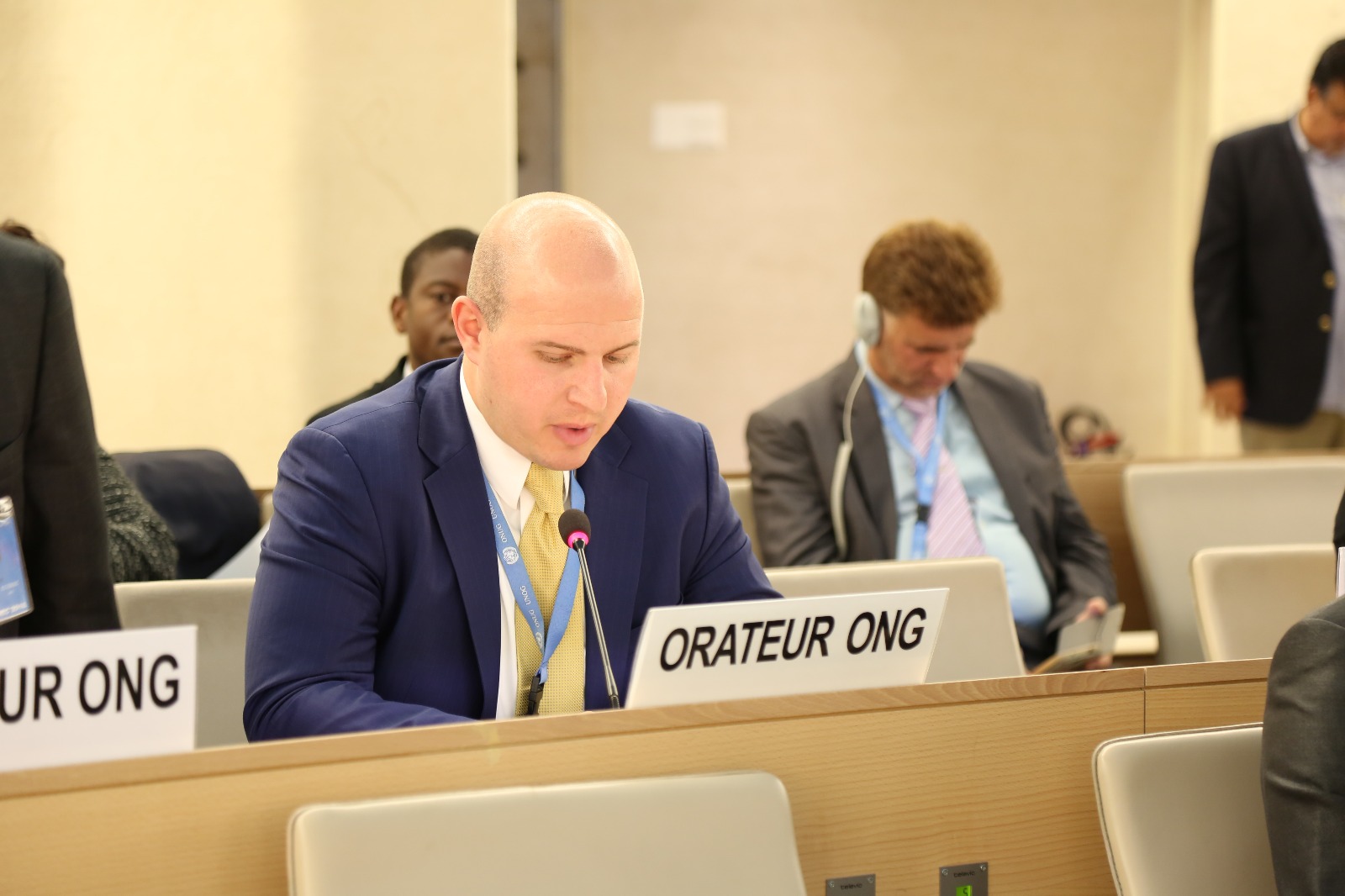On 9 March 2017, ADHRB’s International Advocacy Officer Michael Payne delivered an oral intervention at the 34th session of the Human Rights Council. He participated in the Interactive Dialogue with the UN High Commissioner for Human Rights, delivering an oral intervention highlighting the issue of the increasingly deteriorating human rights situation in Bahrain over the past several months. Particularly, Payne noted the targeting of human rights defenders, the discrimination against the country’s majority Shia population, the closure of political societies, and recent developments that are marked reversals of the very few reforms the Bahraini government did implement following 2011. Following Payne’s remarks in the video below is the High Commissioner’s followup to our question of recommendations for steps the Bahraini government can take to reverse recent trends. Please continue reading for full remarks or click here to download a PDF.
Mr. High Commissioner,
Americans for Democracy & Human Rights in Bahrain with the Bahrain Institute Rights and Democracy and the Bahrain Center for Human Rights would like to thank the High Commissioner for his report. We share your concerns raised about the deeply troubling human rights situation in Bahrain.
In January of this year, Bahrain unlawfully executed three victims of torture, in a move that ended an informal moratorium on executions in Bahrain since 2010, which you remarked was “deeply regrettable.” Two additional men remain at imminent risk of execution.
In your report, you raised concerns over Bahrain’s closing political and civil society space. Indeed, since June 2016, the government has moved to dissolve the leading political societies, al-Wefaq and Wa’ad, imposed lengthy arbitrary prison sentences against political opposition leaders, imprisoned human rights defenders like Nabeel Rajab, issued widespread travel bans against activists traveling to Geneva, and targeted civil society members and their families with acts of reprisal.
We agree that, “repression will not eliminate people’s grievances; it will increase them.”
We also echo your deep concern over the increasing human rights violations in the kingdom. Just this year, the government expanded the arrest powers of the National Security Agency (NSA) and approved a measure allowing civilians to be tried in military courts. The NSA was responsible for widespread enforced disappearance and deaths of detainees under torture in 2011. The agency’s arrest powers were withdrawn in line with the recommendations of the 2011 BICI Commission. Reinstating these powers represents a dangerous reversal of one of the few constructive reforms undertaken since 2011. In another move that recalls the 2011 protests and subsequent government crackdown, Bahrain’s legislature this week approved a draft law that would allow military courts to try civilians.
Finally, we agree that the government must undertake concrete confidence building measures to arrest the kingdom’s steep decline over the recent months. With this in mind, we ask: what steps would you recommend to Bahrain’s government, parliament and judiciary to effectively and urgently reverse these recent trends? And, what are some immediate steps you would recommend to the Government of Bahrain to de-escalate the rising crisis?”
Thank you.





